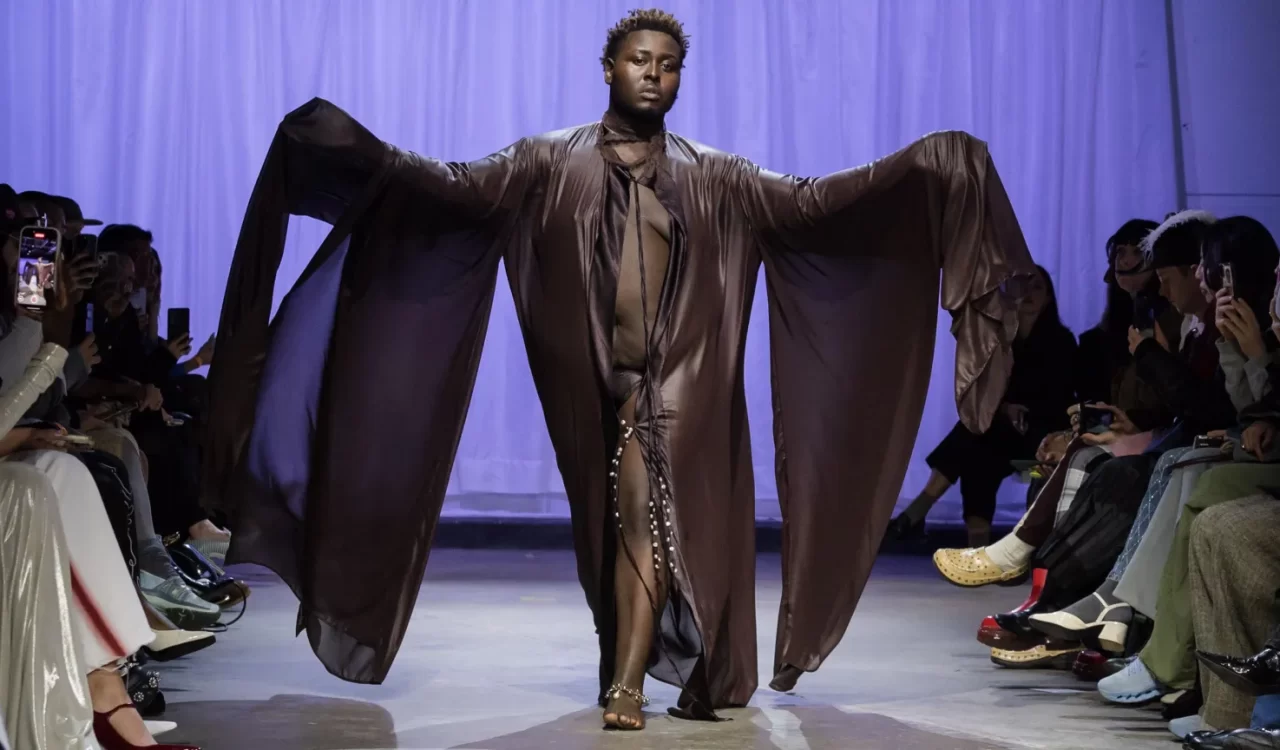James Corbin never expected to break into the fashion industry.
But a message he got in 2020 – thanks to a photographer who’d saved a picture of him a year earlier – changed all that.
“I got a DM, and I thought it was to help out on set, and it was actually to model for Vogue Italia,” says James.
James is a plus-size male model – and says “meaningful change” for him would mean all body types get equal representation and the category no longer exists.
After walking down the catwalk at London Fashion week, he says modelling should be about “showing people how to wear things in different ways, their bodies included.”
James says he initially thought the message from Vogue was a prank.
“I said it to the photographer: ‘Is this a joke?’
“At that time, I didn’t feel I was a model. A model doesn’t look like me. I’ve never opened a magazine and seen someone that looks like me.”
The 2010s were the era of body positivity as social media began to challenge conventional ideas of beauty.
Some of the most famous names linked to the movement are female, but male members of the movement were also pushing the message.
James says he doesn’t meet the industry standard of a male model – “tall and slim, a perfect mannequin”.
“Someone like myself isn’t that,” says James. “By definition, I am a plus-size model just based on my body size, but not my ability.
“In clothes, I’m a 3XL, 2XL. I wear a 44in waist, 40in waist.
“It’s a real body. It’s a body that anybody walks into a store has when they’re going to shop.”
James says he sees it as his mission to challenge the standards.
“I represent what people don’t see and people feel they can’t be involved in fashion because their bodies a certain way,” he says.
James says he’s noticed a decline in the use of plus-sized models within the fashion industry.
“It seems there was a moment where there were so many things happening. It was looking amazing,” he says.
Others, including the editorial director of British Vogue, have said they’re concerned about the body positivity movement falling out of fashion.
Recent high-profile events have tended to feature very slim models – a trend some have linked to the rise in popularity of weight-loss jabs.
James says this appears to have taken hold on the High Street, too, and he has been finding it harder to shop for clothes in his size and been advised to search online instead.
Some people criticise body positivity campaigners as promoting unhealthy lifestyles, but James rejects this.
“Everyone should be healthy,” he says.
“I go to the gym, I eat well because I need to have the strength, have the stamina to model, but I don’t believe I should have to change my body to fit a society standard.
“The way that my body is built, as a black, Jamaican, Kenyan and Bajan boy, I will never be the stick-thin model even if I’m to lose all the weight.
“So it’s to show different body types need to be represented regardless.”
